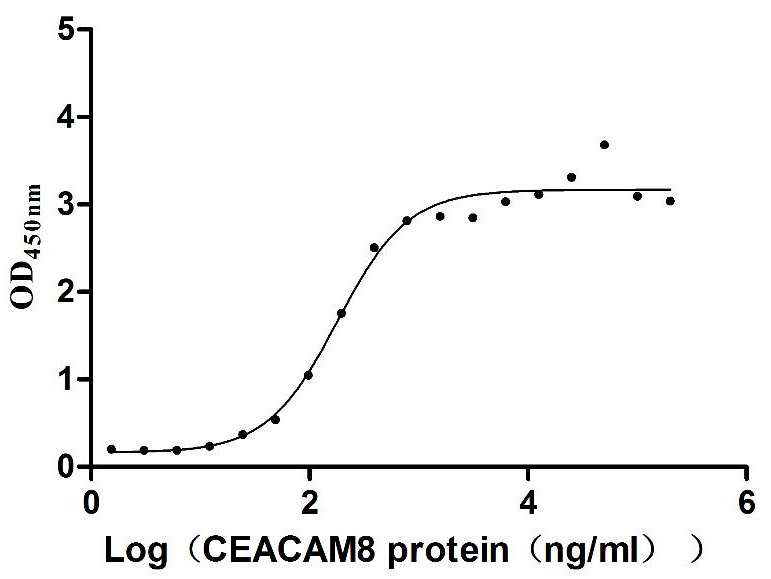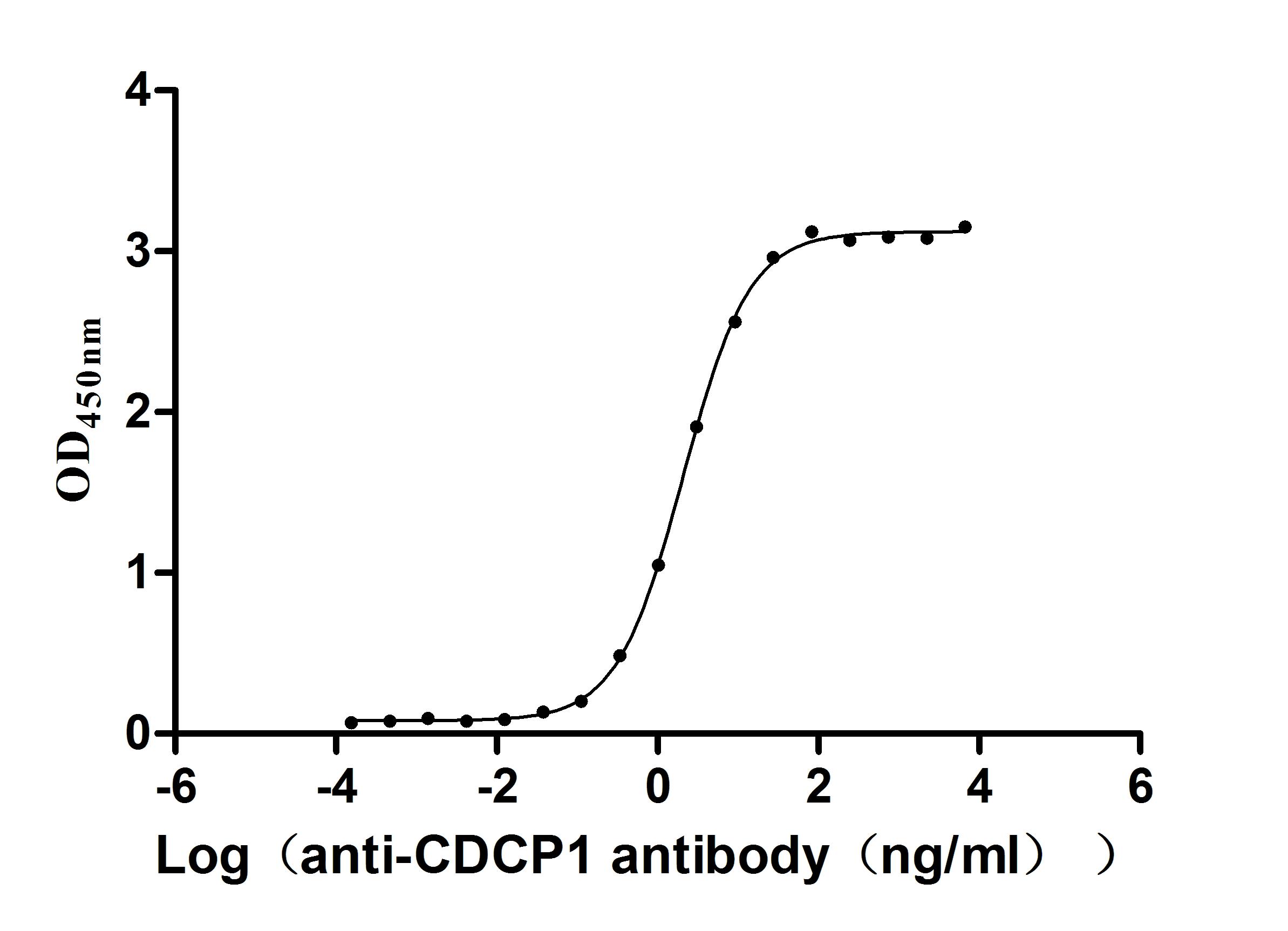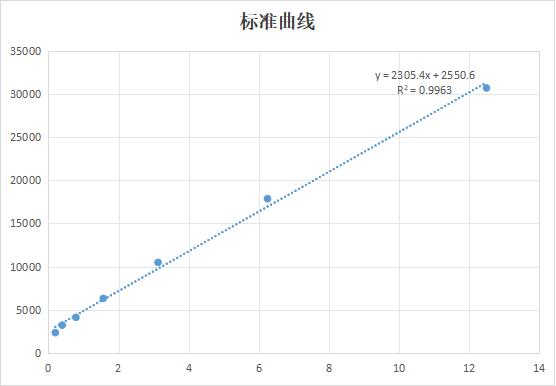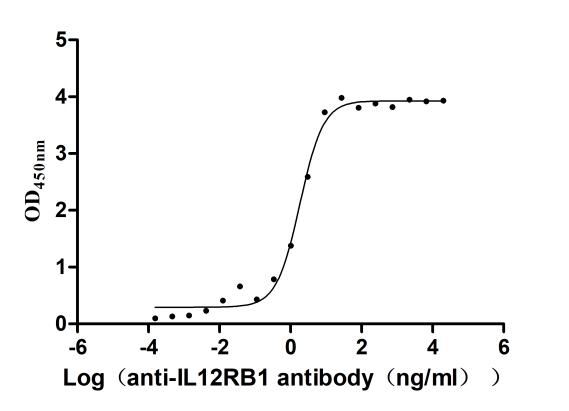Recombinant Human Disks large homolog 4 (DLG4)
-
货号:CSB-YP006938HU
-
规格:
-
来源:Yeast
-
其他:
-
货号:CSB-EP006938HU-B
-
规格:
-
来源:E.coli
-
共轭:Avi-tag Biotinylated
E. coli biotin ligase (BirA) is highly specific in covalently attaching biotin to the 15 amino acid AviTag peptide. This recombinant protein was biotinylated in vivo by AviTag-BirA technology, which method is BriA catalyzes amide linkage between the biotin and the specific lysine of the AviTag.
-
其他:
-
货号:CSB-BP006938HU
-
规格:
-
来源:Baculovirus
-
其他:
产品详情
-
纯度:>85% (SDS-PAGE)
-
基因名:
-
Uniprot No.:
-
别名:Discs large homolog 4; Disks large homolog 4; DLG 4; Dlg4; DLG4_HUMAN; FLJ97752; FLJ98574; Human post synaptic density protein 95; Post synaptic density protein 95; Postsynaptic density protein 95; PSD 95; PSD-95; PSD95; SAP 90; SAP-90; SAP90; Synapse associated protein 90; Synapse-associated protein 90; Tax interaction protein 15
-
种属:Homo sapiens (Human)
-
蛋白长度:Full length protein
-
表达区域:1-724
-
氨基酸序列MDCLCIVTTK KYRYQDEDTP PLEHSPAHLP NQANSPPVIV NTDTLEAPGY ELQVNGTEGE MEYEEITLER GNSGLGFSIA GGTDNPHIGD DPSIFITKII PGGAAAQDGR LRVNDSILFV NEVDVREVTH SAAVEALKEA GSIVRLYVMR RKPPAEKVME IKLIKGPKGL GFSIAGGVGN QHIPGDNSIY VTKIIEGGAA HKDGRLQIGD KILAVNSVGL EDVMHEDAVA ALKNTYDVVY LKVAKPSNAY LSDSYAPPDI TTSYSQHLDN EISHSSYLGT DYPTAMTPTS PRRYSPVAKD LLGEEDIPRE PRRIVIHRGS TGLGFNIVGG EDGEGIFISF ILAGGPADLS GELRKGDQIL SVNGVDLRNA SHEQAAIALK NAGQTVTIIA QYKPEEYSRF EAKIHDLREQ LMNSSLGSGT ASLRSNPKRG FYIRALFDYD KTKDCGFLSQ ALSFRFGDVL HVIDASDEEW WQARRVHSDS ETDDIGFIPS KRRVERREWS RLKAKDWGSS SGSQGREDSV LSYETVTQME VHYARPIIIL GPTKDRANDD LLSEFPDKFG SCVPHTTRPK REYEIDGRDY HFVSSREKME KDIQAHKFIE AGQYNSHLYG TSVQSVREVA EQGKHCILDV SANAVRRLQA AHLHPIAIFI RPRSLENVLE INKRITEEQA RKAFDRATKL EQEFTECFSA IVEGDSFEEI YHKVKRVIED LSGPYIWVPA RERL
-
蛋白标签:Tag type will be determined during the manufacturing process.
The tag type will be determined during production process. If you have specified tag type, please tell us and we will develop the specified tag preferentially. -
产品提供形式:Lyophilized powder
Note: We will preferentially ship the format that we have in stock, however, if you have any special requirement for the format, please remark your requirement when placing the order, we will prepare according to your demand. -
复溶:We recommend that this vial be briefly centrifuged prior to opening to bring the contents to the bottom. Please reconstitute protein in deionized sterile water to a concentration of 0.1-1.0 mg/mL.We recommend to add 5-50% of glycerol (final concentration) and aliquot for long-term storage at -20℃/-80℃. Our default final concentration of glycerol is 50%. Customers could use it as reference.
-
储存条件:Store at -20°C/-80°C upon receipt, aliquoting is necessary for mutiple use. Avoid repeated freeze-thaw cycles.
-
保质期:The shelf life is related to many factors, storage state, buffer ingredients, storage temperature and the stability of the protein itself.
Generally, the shelf life of liquid form is 6 months at -20°C/-80°C. The shelf life of lyophilized form is 12 months at -20°C/-80°C. -
货期:Delivery time may differ from different purchasing way or location, please kindly consult your local distributors for specific delivery time.Note: All of our proteins are default shipped with normal blue ice packs, if you request to ship with dry ice, please communicate with us in advance and extra fees will be charged.
-
注意事项:Repeated freezing and thawing is not recommended. Store working aliquots at 4°C for up to one week.
-
Datasheet :Please contact us to get it.
相关产品
靶点详情
-
功能:Postsynaptic scaffolding protein that plays a critical role in synaptogenesis and synaptic plasticity by providing a platform for the postsynaptic clustering of crucial synaptic proteins. Interacts with the cytoplasmic tail of NMDA receptor subunits and shaker-type potassium channels. Required for synaptic plasticity associated with NMDA receptor signaling. Overexpression or depletion of DLG4 changes the ratio of excitatory to inhibitory synapses in hippocampal neurons. May reduce the amplitude of ASIC3 acid-evoked currents by retaining the channel intracellularly. May regulate the intracellular trafficking of ADR1B. Also regulates AMPA-type glutamate receptor (AMPAR) immobilization at postsynaptic density keeping the channels in an activated state in the presence of glutamate and preventing synaptic depression.
-
基因功能参考文献:
- DNA methylation of DLG4 and of human hippocampus and prefrontal cortex in major depression is unchanged in comparison to healthy individuals. PMID: 28645745
- results suggest that rare missense mutations in the candidate PSD genes may increase susceptibility to SZ and/or ASD. These findings may strengthen the theory that rare, non-synonymous variants confer substantial genetic risks for these disorders PMID: 27271353
- in postsynaptic densities, PSD95 palmitoylation, conformation, and its interactions are dynamic when associated with AMPARs and more stable when associated with NMDARs PMID: 27956638
- a dual role for PSD-95 in stabilizing synaptic NMDARs by binding directly to GluN2B but also by promoting synaptic exclusion and degradation of the negative regulator STEP61. PMID: 27457929
- the s integrate molecular and imaging data from animal models and preterm infants, and find that microglial expression of DLG4 plays a role. PMID: 28874660
- Phosphorylation at Y397 induced a significant increase in affinity for stargazing. The strategy presented here to generate site-specifically phosphorylated PDZ domains provides a detailed understanding of the role of phosphorylation in the regulation of PSD95 interactions. PMID: 28692247
- This study demonstrated that a significant decrease in the protein level of PSD-95 in major depression disorder. PMID: 27661418
- These results indicate that PKC promotes synaptogenesis by activating PSD-95 phosphorylation directly through JNK1 and calcium/calmodulin-dependent kinase II and also by inducing expression of PSD-95 and synaptophysin. PMID: 27330081
- The differences in cortical NMDAR expression and post-synaptic density protein 95 are present in psychiatric disorders and suicide completion and may contribute to different responses to ketamine. PMID: 26013316
- Mutation C>T at the rs13331 in the PSD95 gene is strikingly associated with an increased risk of autism spectrum disorders. PMID: 27072977
- Data demonstrate a role for SNAP-25 in controlling PSD-95 clustering and open the possibility that genetic reductions of the protein levels may contribute to the pathology through an effect on postsynaptic function and plasticity. PMID: 25678324
- Data indicate the very high affinities of the trimeric ligands to postsynaptic density protein 95 (PSD-95) PDZ domains. PMID: 25658767
- In this review, we focus on palmitoylation of PSD-95, which is a major postsynaptic scaffolding protein and makes discrete postsynaptic nanodomains in a palmitoylation-dependent manner and discuss a determinant role of local palmitoylation cycles PMID: 25849917
- An association was found between reduced PSD95 in the prefrontal cortex and cognitive impairment in patients with either dementia with Lewy bodies or Parkinson's disease dementia. PMID: 25104558
- Docosahexaenoic acid-containing phosphatidylcholines and PSD-95 decrease after loss of synaptophysin and before neuronal loss in patients with Alzheimer's disease. PMID: 25410733
- The postsynaptic membrane protein PSD95 was increased in schizophrenia in CA3 tissue, but not in CA1 tissue. PMID: 25585032
- The crystal structures of the Dlg4 GK domain in complex with two phosphor-Lgl2 peptides reveal the molecular mechanism underlying the specific and phosphorylation-dependent Dlg/Lgl complex formation. PMID: 24513855
- PSD-95 mRNA G-rich region folds into alternate G quadruplex conformations that coexist in equilibrium and miR-125a forms a stable complex with PSD-95 mRNA. PMID: 25406362
- Polymorphisms of DRD1, DLG4 and HOMER1 are associated with opiate abuse. PMID: 23044706
- The PDZ1 domain of PSD-95 has a shallow binding pocket that accommodates a peptide ligand involving far fewer interactions and a micromolar affinity PMID: 23394112
- No association was found between the seven single nucleotide polymorphisms in DLG4 and schizophrenia. PMID: 23921260
- A putative role for DLG4 in schizophrenia pathogenesis, evidenced by haplotype association, has been described. PMID: 23936182
- interactions of G protein-coupled receptors with postsynaptic density protein 95 PMID: 23691031
- Fyn mediates postsynaptic density protein- 95Y523 phosphorylation, which may be responsible for the excitotoxic signal cascades and neuronal apoptosis in brain ischemia and amyloid-beta peptide neurotoxicity. PMID: 22709448
- Calcyon forms a novel ternary complex with dopamine D1 receptor through PSD-95 protein and plays a role in dopamine receptor internalization PMID: 22843680
- a role of PAR-1 in spine morphogenesis in hippocampal neurons through phosphorylating PSD-95. PMID: 22807451
- study adds new components to the multi-dentate membrane targeting mechanism and highlights the role of N- and C-terminal PDZ extensions of PSD-95/ZO-1 in the regulation of syntenin-1 plasma membrane localization PMID: 22673509
- Phosphorylation of a PDZ domain extension modulates binding affinity and interdomain interactions in postsynaptic density-95 (PSD-95) protein, a membrane-associated guanylate kinase (MAGUK). PMID: 21965656
- tetrad complex shows the close association of the Kir2.1 cytoplasmic domains and the influence of PSD-95 mediated self-assembly on the clustering of these channels PMID: 21756874
- In developing visual cortex TrkB and protein kinase M zeta, two critical regulators of synaptic plasticity, facilitate PSD-95 targeting to synapses PMID: 21849550
- Genetic and functional analysis of the DLG4 gene encoding the post-synaptic density protein 95 in schizophrenia PMID: 21151988
- Our current findings, suggesting decreased levels of PSD95, NR2A, and LRP-1, with elevated levels of caspase-3 and Bcl2 proteins, may reflect or contribute to neuronal and synaptic loss in the amnestic mild cognitive impairment hippocampus PMID: 19774677
- PSD-95 has a role in regulating the functional activity and intracellular trafficking of 5-HT2A receptors and possibly other GPCRs PMID: 12682061
- A single nucleotide polymorphism was identified as not significantly associated with schizophrenia. PMID: 12950712
- PSD-95 and Lin-7b interact with acid-sensing ion channel-3 and have opposite effects on H+- gated current PMID: 15317815
- ApoEr2 can form a multiprotein complex with NMDA receptor subunits and PSD95 PMID: 16332682
- it is unlikely that the PSD-95 polymorphisms investigated play a substantial role in conferring susceptibility to schizophrenia in the Chinese population PMID: 17093888
- GABARAP and DLG4 genes are involved in the etiology of nicotine dependence in European-American smokers. PMID: 17164261
- thermodynamic parameters associated with the binding of several series of linear peptides to the third PDZ domain of PSD-9 have been measured using isothermal titration calorimetry PMID: 17474715
- The results clearly indicate that D1R-modulated NR1a/NR2B receptor function depends on PSD-95 and is subjected to the regulation of PKA and PKC. PMID: 17506933
- PSD-95, the Kv1.3 potassium channel, and insulin receptor serine kinase co-localize to regulate membrane excitability and synaptic transmission at critical locations in the olfactory bulb. PMID: 17854350
- PSD-95 levels increased postnatally to reach a stable plateau by early childhood with a slight reduction in late adolescence and early adulthood PMID: 17916412
- These results suggest that NR2A and NR2B may associate with PSD-95 but with different affinities. This may be important in the determination of the lateral mobility of NMDA receptor subtypes in post-synaptic membranes. PMID: 18308477
- Increase in postsynaptic density protein PSD-95 expression positively correlates with beta amyloid and phosphorylated Tau proteins in Alzheimer's disease cases. PMID: 18424056
- This study found that the PSD-95 protein level significationalty elevated in pateint with deression. PMID: 18570704
- The DLG4 protein enhances the resensitization of the D1 DA receptor by accelerating D1 receptor recycling to the cell membrane. PMID: 19274064
- These data suggest that NMDA receptor complex formation, localization, and downstream signaling may be abnormal in schizophrenia as PSD95, SynGAP and MUPP1 expression is altered. PMID: 19483657
- An altered association between membrane-associated guanylate kinases (such as PSD-95) and NMDA receptors in mutant huntingtin-expressing cells contributes to increased susceptibility to excitotoxicity. PMID: 19726651
- validated occurrence of an unusual TG 3' splice site in intron 5 PMID: 17672918
显示更多
收起更多
-
亚细胞定位:Cell membrane; Lipid-anchor; Cytoplasmic side. Cell junction, synapse, postsynaptic density. Cell junction, synapse. Cytoplasm. Cell projection, axon. Cell projection, dendritic spine. Cell projection, dendrite. Cell junction, synapse, presynapse.
-
蛋白家族:MAGUK family
-
组织特异性:Brain.
-
数据库链接:
HGNC: 2903
OMIM: 602887
KEGG: hsa:1742
STRING: 9606.ENSP00000293813
UniGene: Hs.463928
Most popular with customers
-
Recombinant Human Signal transducer CD24 (CD24)-Nanoparticle (Active)
Express system: Mammalian cell
Species: Homo sapiens (Human)
-
Recombinant Mouse Transthyretin (Ttr) (Active)
Express system: Mammalian cell
Species: Mus musculus (Mouse)
-
Recombinant Mouse Claudin-18 (Cldn18)-VLPs (Active)
Express system: Mammalian cell
Species: Mus musculus (Mouse)
-
Recombinant Human Carcinoembryonic antigen-related cell adhesion molecule 6 (CEACAM6) (Active)
Express system: Mammalian cell
Species: Homo sapiens (Human)
-
Recombinant Macaca fascicularis CUB domain containing protein 1 (CDCP1), partial (Active)
Express system: Mammalian cell
Species: Macaca fascicularis (Crab-eating macaque) (Cynomolgus monkey)
-
Recombinant Human Urokinase-type plasminogen activator(PLAU) (Active)
Express system: Mammalian cell
Species: Homo sapiens (Human)
-
Recombinant Human Interleukin-12 receptor subunit beta-1(IL12RB1),partial (Active)
Express system: Mammalian cell
Species: Homo sapiens (Human)


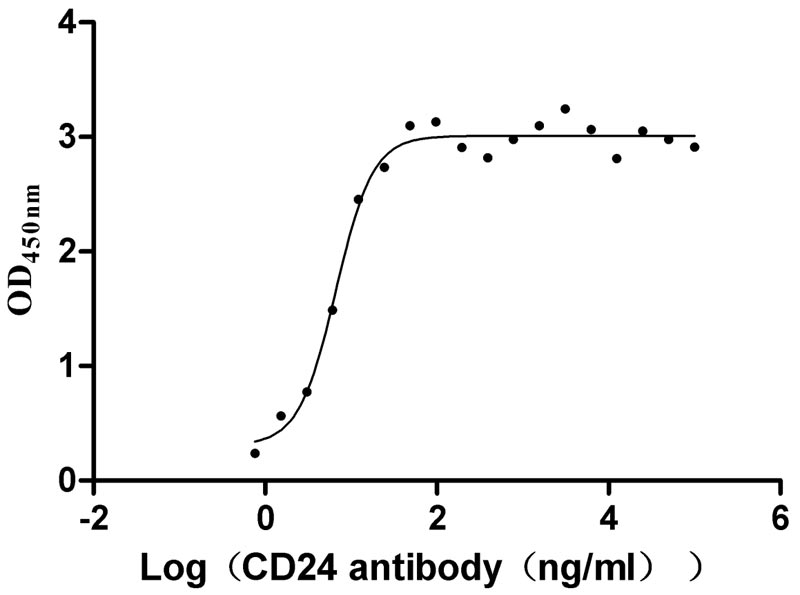
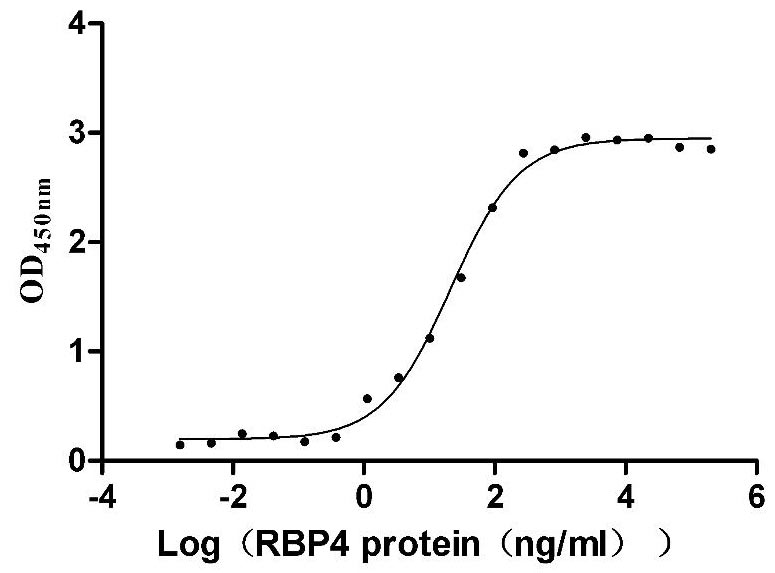
-AC1.jpg)
